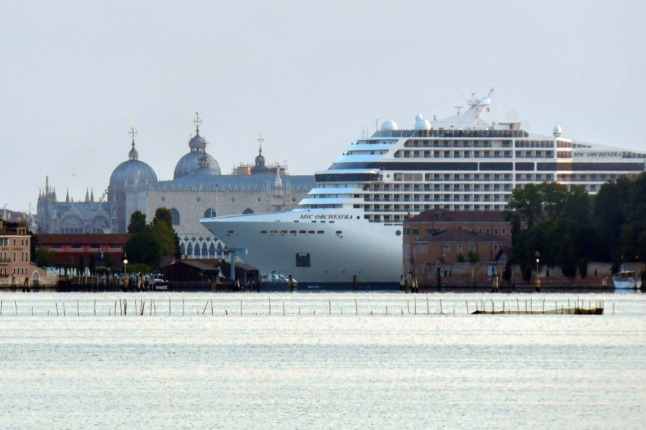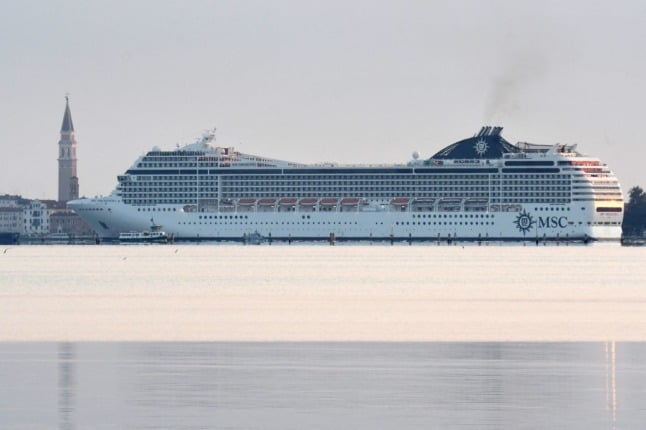Venice residents were surprised on Thursday morning to see a giant cruise ship docking for the first time since the start of the pandemic, after repeated government pledges to reroute the huge vessels due to safety and environmental concerns.
Italy’s government announced in March that cruise ships would no longer sail past Venice’s iconic St Mark’s Square and dock in the historic centre, but instead be diverted to the city’s industrial port.
However, the infrastructure is not yet in place for this to happen.
The 92,000-ton MSC Orchestra arrived empty from the Greek port of Piraeus and will pick up about 650 passengers on Saturday, before heading south to Bari, Corfu, Mykonos and Dubrovnik.
The numbers on board are limited by Covid-19 restrictions to a fraction of the ship’s usual 3,000 capacity, while all passengers must show negative tests before joining the cruise.
Their presence in Venice is proving no less controversial than it was before the pandemic, with two demonstrations planned for Saturday – one in support of the cruise ship, one against.
They're back. Or at least one is. Good morning #Venice pic.twitter.com/05rBsGWimX
— Philip Gwynne Jones (@PGJonesVenice) June 3, 2021
Environmental protesters have long warned that the large waves caused by the cruise ships are eroding the foundations of the buildings in Venice, which with its lagoon are designated a UNESCO heritage site.
Many of the city’s residents are also concerned that cruise ships are major contributors to the usual problem with overcrowding in the historic lagoon city, while complaining that passengers spend little during their short visits.
Celebrities and cultural figures including Mick Jagger, Francis Ford Coppola and Richard Armstrong, director of the New York’s Solomon R. Guggenheim Museum, this week called for an end to the passage of large ships through the lagoon.

In an open letter to the Italian government calling for a range of measures to better protect the city, they warned the historic site risked being “swept away” by the ships.
Compiled by the Venetian Heritage Foundation, the letter also urged an end to mass tourism that “wears it out”.
The liners have not sailed from Venice since cruises were first blocked last spring, even as they resumed briefly over the summer. Both of Italy’s biggest lines, Costa and MSC Cruises, redirected their ships to bigger ports near Trieste, Genova and Rome instead.
The MSC Orchestra’s arrival comes two years and a day after the MSC Opera struck a dock and a tourist river boat in the city.



 Please whitelist us to continue reading.
Please whitelist us to continue reading.
Member comments